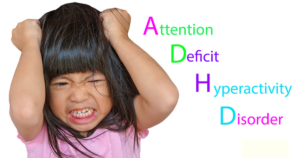What is ADHD?
One of the most prevalent neurodevelopmental diseases in children is ADHD as per the Kids Specialist AB Road. It frequently persists into maturity and is typically first diagnosed in a child. Children with ADHD may struggle to focus, manage impulsive behaviors (doing without considering the consequences), or be extremely active.
Along with poor academic performance, problematic relationships, and low self-esteem, children with ADHD may also have these issues. The Kids Specialist AB Road says that sometimes, symptoms get better as we mature. Some individuals, however, never fully outgrow their ADHD symptoms. However, kids can pick up successful coping mechanisms.
Although medication won’t make ADHD go away, it can greatly reduce symptoms. Medication and behavioral therapies are frequently used in treatment. An early diagnosis and course of treatment can greatly impact the result.
Signs and Symptoms of ADHD – Kids Specialist AB Road
ADHD’s main features include hyperactive-impulsive conduct and inattention. Before the age of twelve, ADHD symptoms begin, and in some kids, they become apparent as early as age three. Mild, moderate, or severe symptoms of ADHD may persist until adulthood.
Males are more likely than females to have ADHD, and behaviors between boys and girls can vary. For instance, boys might be more energetic and girls might favor peaceful indifference.
There are three subtypes of ADHD:
- Mainly not paying attention. Most symptoms fall under the category of inattention.
- Impetuous and hyperactive mostly. Most of the symptoms are impulsive and hyperactive.
- Combined. This is a combination of hyperactive/impulsive and inattentive symptoms.
Inattention
A child who regularly indicates inattention may frequently:
- Make casual errors or fail to pay close attention to specifics when completing schooling
- Difficulty focusing while activities or play
- Seem not to be listening, even when being addressed directly
- Fail to complete tasks or studies due to difficulty in following directions.
- Having problems planning your activities and tasks.
- Avoid or detest jobs that need a concentration of mental energy, such as schoolwork.
- Items that are required for chores or activities, such as toys, homework, or pencils, go missing.
- Failing to complete some everyday tasks, such as chores
Types of ADHD in Child
Depending on which symptoms are most prominent in the individual, there are three ways that ADHD presents itself:
Presentation that is Predominantly Inattentive: It is challenging for the person to arrange or complete a task, pay attention to details, or follow directions or dialogues. The individual gets easily sidetracked or overlooks small elements of daily activities.
Presentation that is Predominantly Hyperactive-Impulsive: The person likes to play and talks a lot. Long periods of stillness are challenging (e.g., for a meal or while doing homework). Children that are younger may continually run, jump, or climb. The person is restless and struggles with impulse control.
Impulsive persons may speak suddenly, seize objects from others, or interrupt others frequently. The person finds it challenging to follow instructions or wait their turn. Impulsiveness increases the likelihood of accidents and injury for some people.
Combination Presentation: The person exhibits both of the aforementioned types of symptoms in equal measure.
The appearance may alter over time because of the symptoms.
When to see a Kids Specialist AB Road
Consult your pediatrician, primary care physician, or a Kids Specialist AB Road if you are worried that your child may be showing indications of ADHD. It’s vital to first have a medical evaluation to rule out any other potential causes of your child’s challenges. The Kids Specialist AB Road may recommend you to a specialist, such as a developmental-behavioral pediatrician, psychologist, psychiatrist, or pediatric neurologist.







